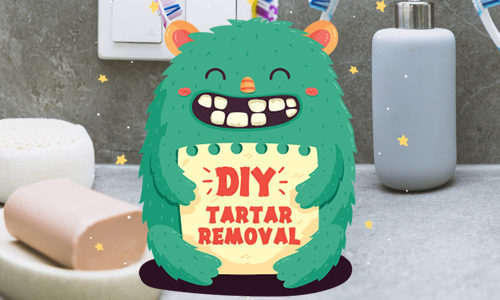
Oil pulling – how to and health benefits
We have collected tons of questions regarding oil-pulling removal and will answer them all below. The article will be updated every week or two with new answers so please check back soon!
Is it better to oil-pull in the morning or at night?
There is no scientific evidence to suggest that oil pulling is more effective at night than in the morning. However, some people may find it more convenient to do it at night, before going to bed. It is important to note that oil pulling is not a substitute for regular brushing and flossing, and it should be done in addition to, not instead of, these important oral hygiene practices.
Ultimately, the best time to do oil pulling is whatever time is most convenient and works best for you. As long as you do it regularly and consistently, it can be a helpful addition to your oral hygiene routine.
How to oil pull correctly?
To oil pull correctly, follow these steps:
- Place 1-2 teaspoons of oil (such as coconut or sesame oil) in your mouth.
- Swish the oil around in your mouth for 15-20 minutes, taking care not to swallow any of it.
- Spit the oil out into a trash can, being careful not to spit it down the sink as it can clog the drains.
- Rinse your mouth with warm water to remove any remaining oil.
- Brush your teeth and floss as you normally would.
It is important to swish the oil around in your mouth for the full 15-20 minutes to allow it to thoroughly clean your mouth. You may want to set a timer to help you keep track of the time. You may also feel a slight burning or tingling sensation in your mouth as you oil pull, which is normal.
Does oil pulling help for cough?
There is no evidence to suggest that oil pulling can treat or cure a cough. A cough is a common symptom of many respiratory illnesses, and it is typically caused by irritation or inflammation of the airways. Coughs can be treated with over-the-counter medications, such as cough syrups or lozenges, or with home remedies, such as drinking warm liquids or using a humidifier.
If you are experiencing a cough, it is important to talk to your doctor to determine the underlying cause and to receive appropriate treatment. Oil pulling is not a substitute for medical treatment, and it should not be used to treat or cure a cough. It is also not recommended to use oil pulling as a replacement for regular brushing and flossing, which are important for maintaining good oral health.
Does coconut oil help for oral thrush?
Coconut oil is sometimes used as a natural remedy for oral thrush because it is thought to have antifungal properties. However, there is no scientific evidence to support this claim, and more research is needed to determine whether coconut oil is effective for treating oral thrush.
If you are experiencing symptoms of oral thrush, it is important to talk to your doctor to receive appropriate treatment. Antifungal medications, such as nystatin or fluconazole, are typically used to treat oral thrush. Using coconut oil as a treatment for oral thrush is not recommended, and it should not be used as a substitute for medical treatment.
How long should we wait to brush after oil pulling?
You should wait at least 30 minutes after oil pulling before brushing your teeth. This is because oil pulling can help to remove bacteria and other debris from your mouth, and brushing your teeth too soon after oil pulling can disturb this process. Additionally, if you brush your teeth immediately after oil pulling, you may accidentally swallow some of the oil, which can lead to stomach discomfort. It’s best to wait at least 30 minutes after oil pulling before brushing your teeth to allow the bacteria and debris to be fully removed from your mouth.
Coconut oil pulling for candida
Oil pulling for oral thrush
There is some evidence to suggest that coconut oil pulling may be effective for treating candida, also known as oral thrush. Candida is a type of yeast that can cause infections in the mouth and throat, and coconut oil has antimicrobial properties that may help to kill the yeast and reduce the symptoms of thrush. However, more research is needed to determine the effectiveness of coconut oil pulling for treating candida. It’s also important to note that coconut oil pulling should not be used as a replacement for other forms of treatment for candida, such as antifungal medication. It’s best to speak with your doctor or dentist if you are experiencing symptoms of candida. They can recommend the best course of treatment for you.
Can oil pulling heal a cavity?
There is no scientific evidence to support the claim that oil pulling can heal cavities. Cavities, also known as tooth decay, are caused by the bacteria in your mouth that produce acid that can erode the enamel of your teeth. Once a cavity forms, it can only be repaired by a dentist through a filling or other restorative treatment. While oil pulling may have some potential oral health benefits, it is not a replacement for regular dental care and cannot heal cavities. It’s important to brush and floss your teeth regularly, see your dentist for regular checkups, and follow their recommendations for maintaining good oral health to prevent the development of cavities.
List of questions yet to be answered:
coconut oil pulling for teeth
oil pulling tooth decay ice tray recipe
oil pulling ice tray recipe
oil pulling gums cavities
oil pulling
gums oil pulling
why shouldn’t you brush teeth before oil pulling
oil pulling heal cavity
oil pulling day or night
oil pulling dental fillings
oil pulling white tongue
This article was last updated on December 7, 2022 and is still work in progress.



